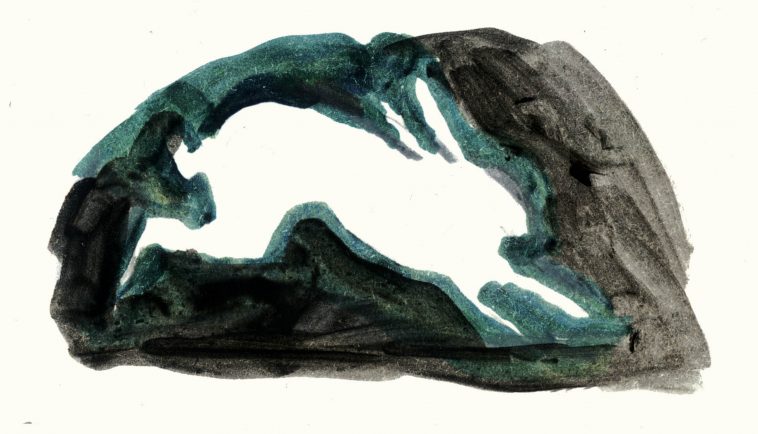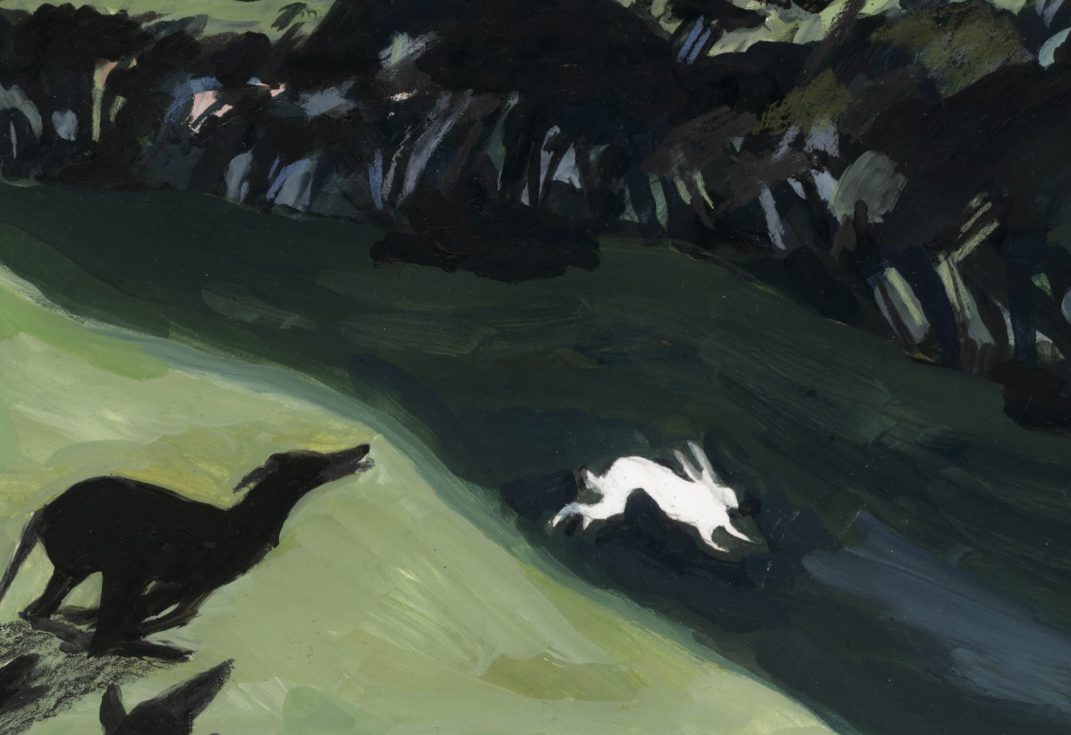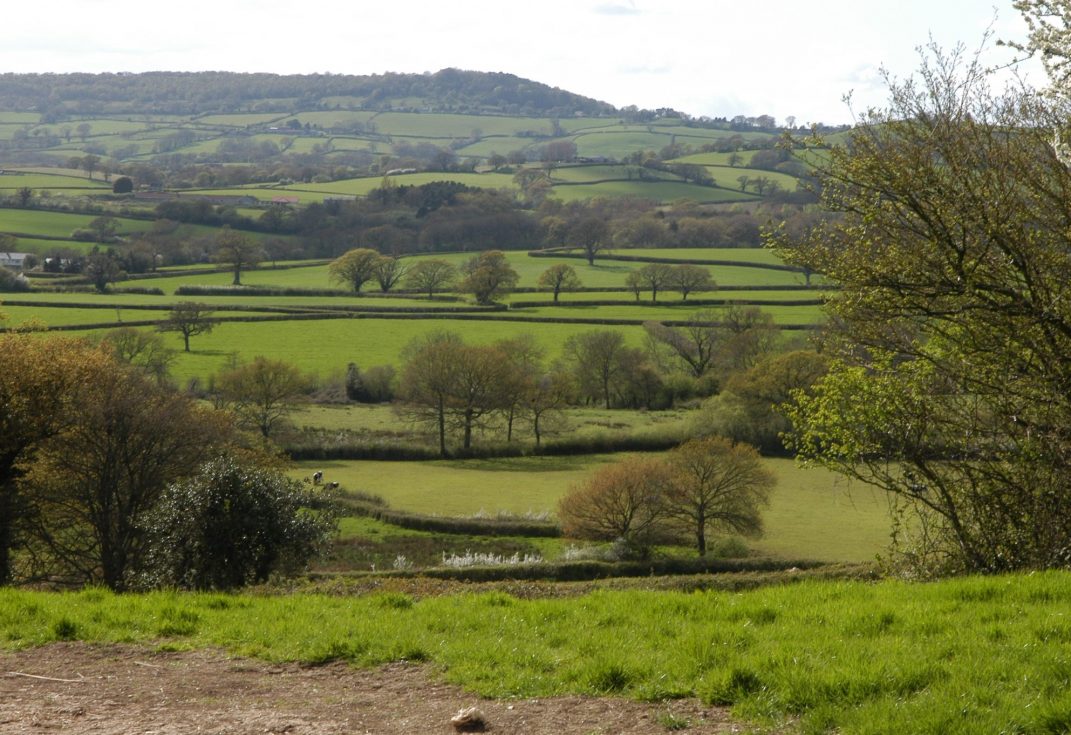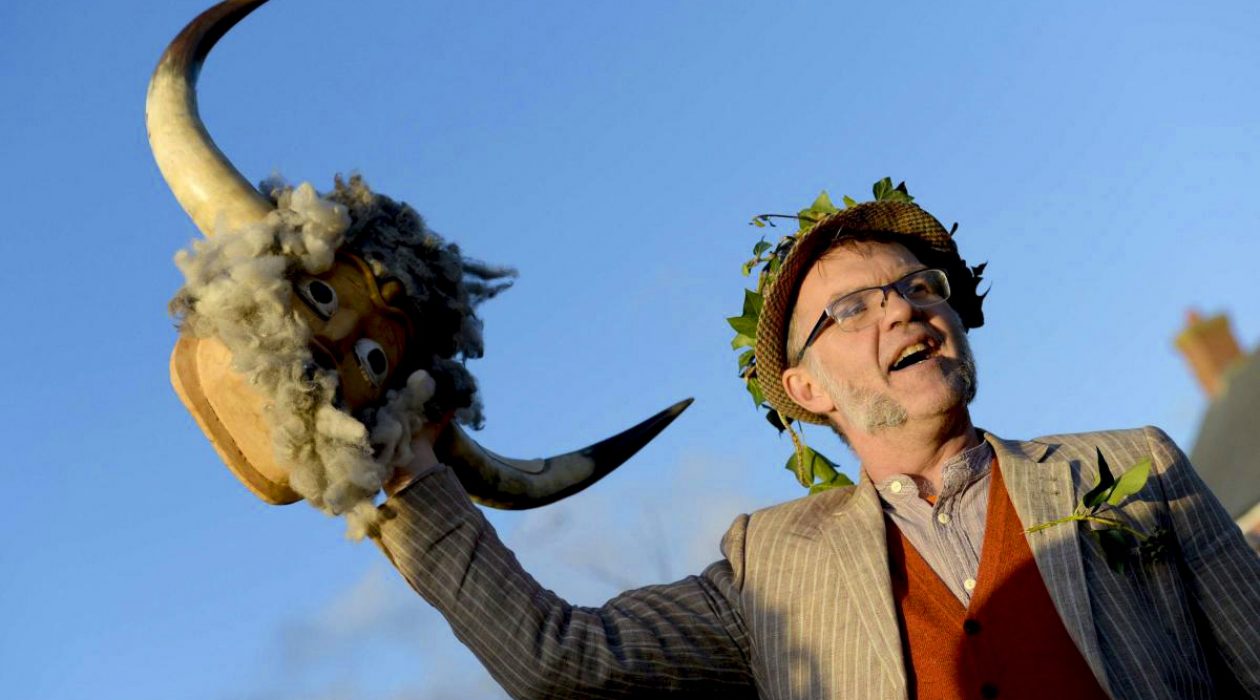A Dorset legend re told by our storyteller Martin Maudsley.
Enjoy this story from The South Dorset Ridgeway, our Land of Bone and Stone.
This story is part of Dorset AONB’s Myths and Legends project.

A Dorset legend re told by our storyteller Martin Maudsley.
Enjoy this story from The South Dorset Ridgeway, our Land of Bone and Stone.
This story is part of Dorset AONB’s Myths and Legends project.

Not that long ago, many folk in rural Dorset supplemented their poorly-paid income from agricultural labour by foraging for food and hunting wild game in the woodlands and common land. They hunted for birds and deer, rabbits and hares, whatever fare was there for the taking – always seasonal but not necessarily always legal…
Once in the village of Littlebredy there was a group of four men, four farmworkers, who in the evenings hunted together – not with guns, they couldn’t afford them – but with hounds. Each man had his own dog (a Longdog which is an old Dorset breed) and in that ancient alliance between human-kind and canine, the hunting was usually a success; more often than not there was something for the men to take home for the pot.
On the days they decided to go hunting, after toiling in the fields since dawn and before setting out with their dogs at dusk, the men were in the habit of leaving some of their own farm-working tools at the cottage of an old woman who lived all by herself in the Valley of Stones. Her house, and indeed the woman herself, were so old and mysterious they seemed to have been there as long as the Ridgeway’s ancient stones and monuments themselves. Well, there were some people in the local villages, suspicious and small-minded folk, who called the old woman a witch and blamed her for all manner of malaises and mishaps. But there were others from the village who beat a path to her door; who came to her for help in the secrecy of night. And to all who came she listened with gentle understanding, before offering herbal remedies or healing words. The hunters themselves rarely saw the old woman as she was often out at dusk, but they were grateful to her and often they left her a little loaf of barley bread by way of thanks for looking after their tools.

One evening, whilst the men were out hunting, they caught a glimpse of a mysterious and magical creature – a pure white hare – racing over an open field before darting down into the valley and disappearing into a copse of trees. They wanted to catch this alluring creature but they never got close – she was too cunning for the hunters and too fast for their dogs. But sometimes men can be proud and stubborn and the four men from Littlebredy wanted to prove themselves as the best hunters. So over the following days and weeks the hunters talked more and more of the elusive white hare and their burning ambition to catch it. They bided their time and laid their plans, like a spider weaving a web to catch a fly…
Soon the pieces of their plan fell into place. On a moist and misty evening in September, with a Harvest Moon rising huge and heavy above the ridgeway, they spotted the white hare nibbling along the edge of the copse. Some of the men sent their dogs running through the trees to flush the hare out into the open. When the hare saw the dogs she was startled and ran like lightning, zig-zagging across the field, ears flat against her body, spine arching and stretching, back legs reaching beyond the front legs as she pushed forward, quickening her pace all the time. Soon she’d outdistanced the chasing Longdogs. But with the hounds behind her, she headed towards the only remaining escape from the field – a gap in a thick hedgerow of hawthorn and holly. The hare reached the gateway ahead of the hounds. But there, hiding, on the other side of the hedge, were two more men with two more dogs. As the white hare ran past the dogs were released from their leashes…

…The still evening air was suddenly pierced with the sound of snapping teeth, frenzied snarling and then a high-pitched, spine-tingling squeal. The dogs ripped and wrenched, bit and broke. Eventually the hare was tossed into the air like a rag toy; white fur flecked with red. She landed – not back on the ground, nor in the jaws of the dogs, but on top of the hedge. And although severely hurt she summoned the last of her strength to scamper painfully along the vicious vegetation of spikes and spines, until eventually she reached the safety of the woods and disappeared into the darkness of the trees.
Hunters and dogs searched and sniffed for an hour or more, without sight or scent of the hare, until finally they admitted defeat. The dogs were clipped back to their tethers and the men made their way to the old woman’s cottage to retrieve their tools. When they arrived the door of the cottage was ajar and as they peered inside their faces drained of colour. There, lying on the floor, in a mangled heap with torn clothes and a broken, bleeding body, was the old woman.
Filled with a mixture of fear and guilt, the men grabbed their tools and ran from the cottage. All except one: the youngest of the hunters. He stepped towards the old woman and realised that she was still breathing. Wrapping her in a woollen blanket, he lifted her body, as light as a bird, onto the bed and then held her head as he gave her sips of water from a clay cup. All night long he stayed by her bedside. Eventually, in the pale morning light, she opened her bruised eyes and was able to speak in short breaths. She told the young man how to make a medicinal brew from hot water and herbs in jars on the shelves around the room. He followed her instructions, carefully and correctly, and in between brewing healing potions he fuelled the fire and went to fetch fresh food from the village. He stayed in the cottage for two weeks, tending the old woman until she’d regained some of her strength and her wounds were beginning to heal. Then she sat up, looked at him with glinting green eyes, wrinkled with a smile, and released him from his duties…
From that day on the hunters of Littlebredy vowed never to hunt the white hare again. Even today, long after the old woman’s death and her cottage now crumbled into broken rocks amongst the Valley of Stones, the story is still remembered. And there are some local folk that still go out at dusk on a mild September evening in the hope of catching a glimpse of long ears and flashing fur – the white hare, racing across the ancient fields around the Ridgeway. And if you’re lucky, you might see her too…


Martin Maudsley is a professional storyteller based in Bridport in Dorset, telling traditional tales and local legends for schools, community groups and national organisations. He has been collaborated with Dorset AONB on many projects using folk-tales and folk-songs to connect participants with nature, the seasons and a sense of place. He is also very active practically celebrating the seasons in and around his neighbourhood, including putting on Mummers Plays, Apple Days and Winter Wassails.